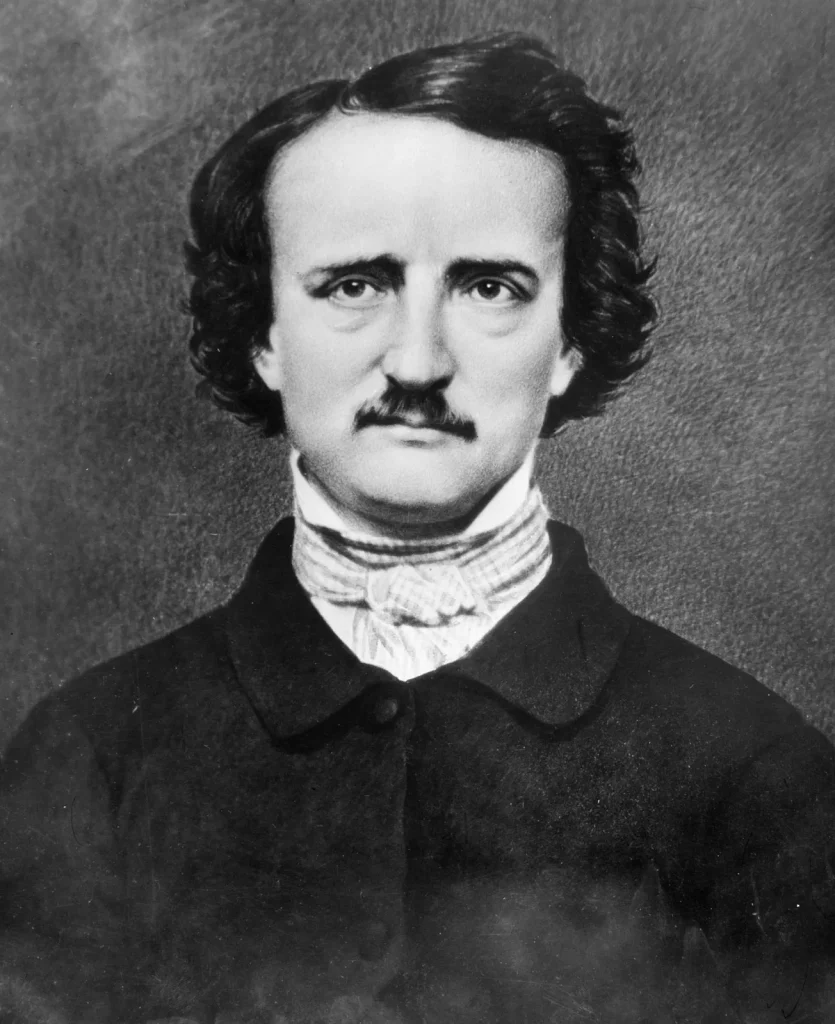
“All that we see or seem is but a dream within a dream.”
— E.A. Poe
His Life
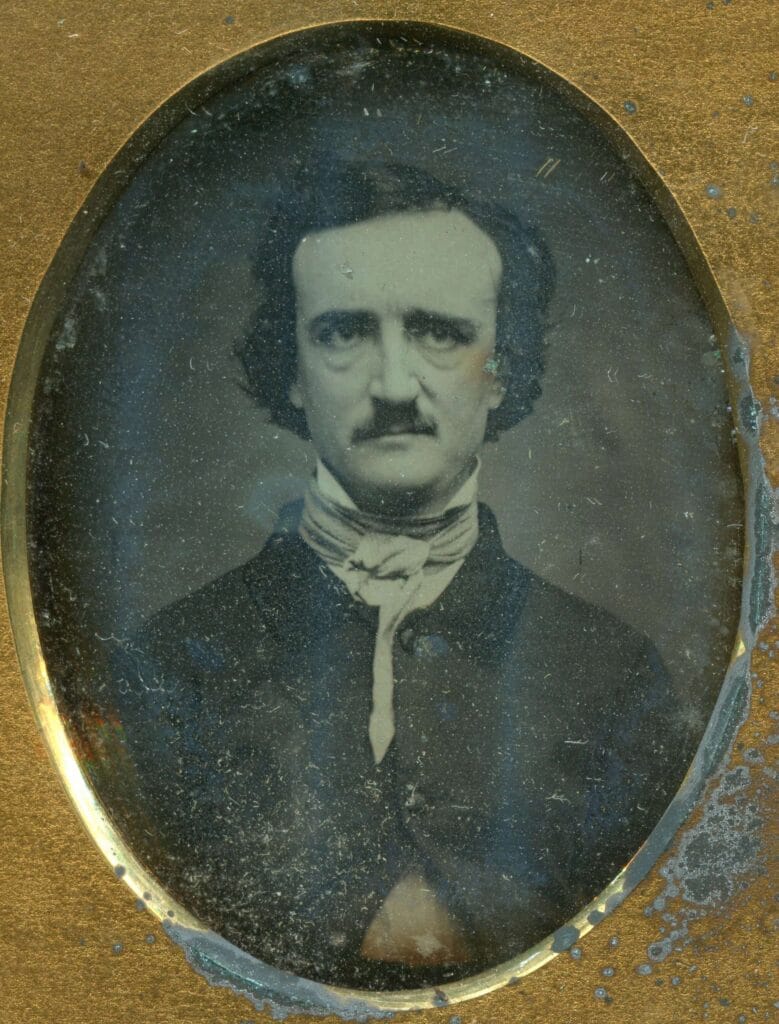
Edgar Allan Poe was born on January 19, 1809, in Boston, Massachusetts. His life was marked by tragedy from an early age. Poe’s parents, both actors, died before he was three years old. He along with his brother William and sister Rosalie, were taken in by different families. Edgar was adopted by John and Frances Allan, a wealthy couple from Richmond, Virginia, though they never formally adopted him.
Poe had a strained relationship with his foster father, John Allan, whose business interests often took precedence over Edgar’s emotional and educational needs. Despite these tensions, Allan provided Poe with a good education. He attended the University of Virginia in 1826 but left after only one year due to financial problems and gambling debts, leading to further estrangement from John Allan.
In 1827, Poe enlisted in the U.S. Army under a pseudonym, Edgar A. Perry. During this period, he published his first collection of poetry, “Tamerlane and Other Poems”.
Following his departure from West Point, Poe moved to Baltimore to live with his aunt, Maria Clemm, and her daughter, Virginia. This period marked the beginning of Poe’s struggle to establish himself as a writer. He published his second poetry collection, “Al Aaraaf, Tamerlane, and Minor Poems”, which received little attention. It was during this time that he began writing prose in earnest, turning his focus to short stories and literary criticism.
Poe’s fortunes began to change when he won a short story contest in 1833 with “MS. Found in a Bottle.” This success led to a position with the “Southern Literary Messenger” in Richmond, where he worked as an editor and contributor. His critical reviews and original writings, such as the darkly humorous “The Tell-Tale Heart” and the macabre “Berenice,” began to draw attention.
Poe’s most productive period spanned the late 1830s to the mid-1840s. During this time, he produced many of his most famous works, solidifying his reputation as a master of gothic and macabre literature.
Poems and short stories
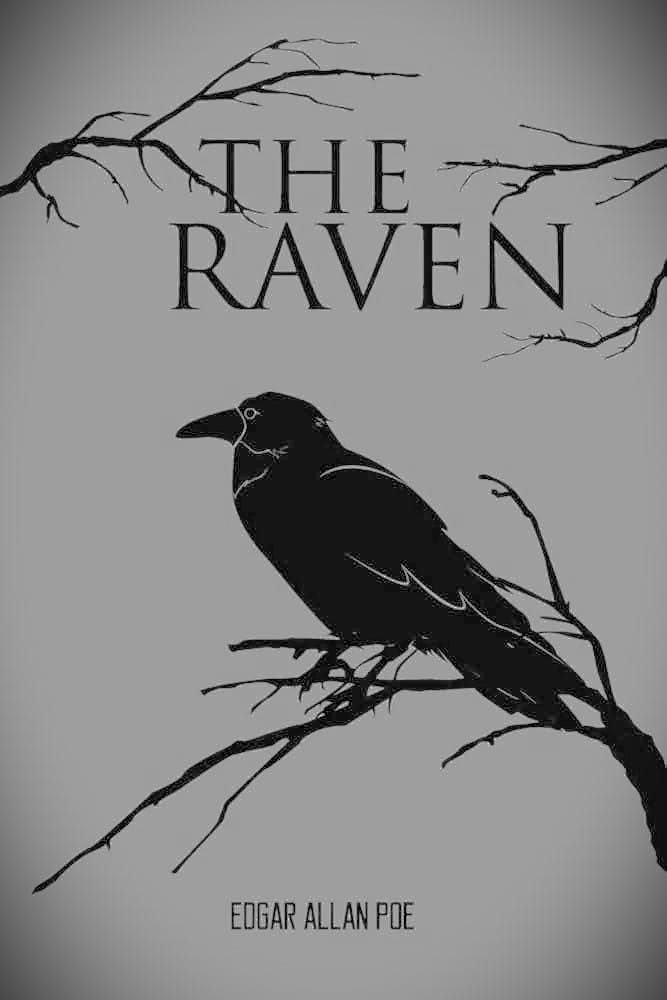
1.”The Fall of the House of Usher” (1839)
2.”The Murders in the Rue Morgue” (1841)
3.”The Masque of the Red Death” (1842)
4.”The Pit and the Pendulum” (1842)
5.”The Raven” (1845)
6.”The Tell-Tale Heart” (1843)
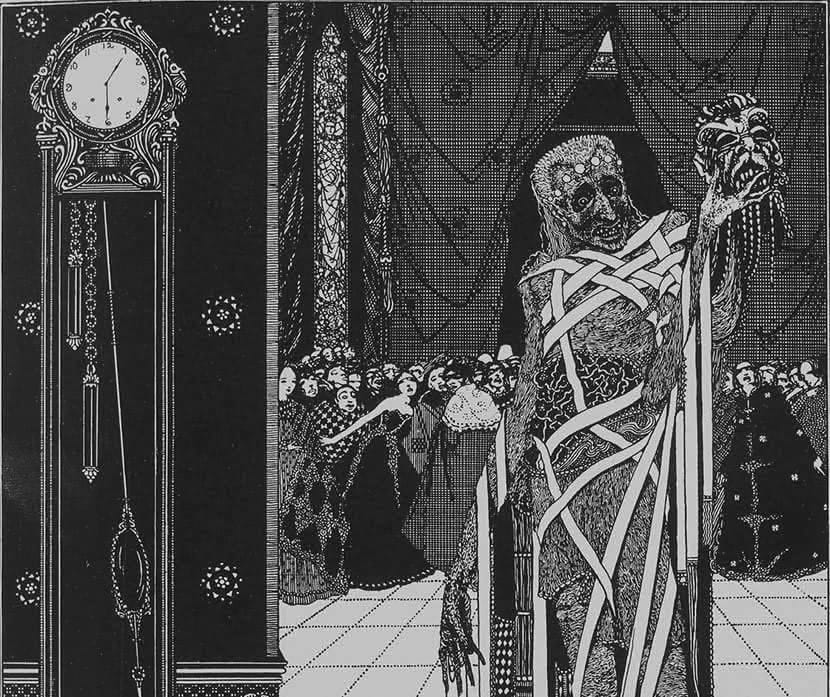
Despite his literary successes, Poe’s life was plagued by poverty, illness, and personal tragedy. His wife (In 1836, Poe married his cousin, Virginia Clemm) health continued to deteriorate, and she died of tuberculosis in 1847. Her death devastated Poe, exacerbating his struggles with alcoholism and depression.
In his later years, Poe attempted to launch a literary magazine, “The Stylus”, but financial backing remained elusive. He continued to write, producing works such as “Eureka,” a prose poem that blends cosmology and metaphysics, but these efforts did little to stabilize his finances or improve his health.
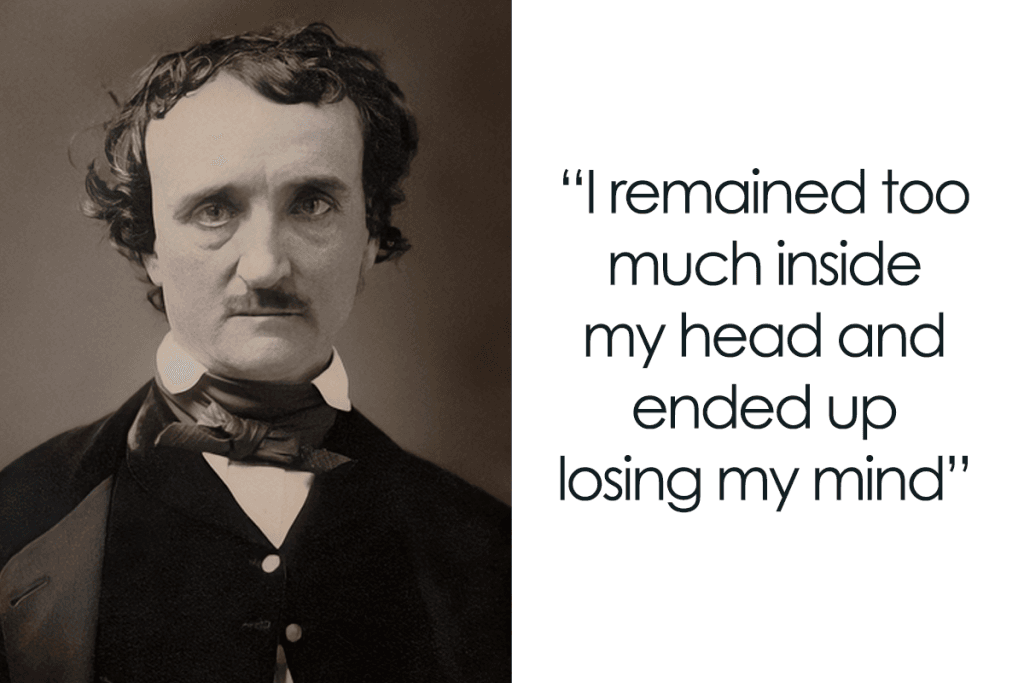
E.A. Poe’s Legacy
Poe’s death on October 7, 1849, remains shrouded in mystery. He was found delirious on the streets of Baltimore, wearing clothes that were not his own, and died in the hospital shortly thereafter. Various theories have been proposed to explain his death, including alcoholism, drug overdose, rabies, and even murder, but none have been conclusively proven.
Despite his tragic and tumultuous life, Edgar Allan Poe’s impact on literature is profound and enduring. He is credited with pioneering the genres of detective fiction and science fiction, and his works laid the groundwork for modern horror. His use of psychological depth and exploration of the human psyche influenced writers such as H.P. Lovecraft, Arthur Conan Doyle, and Stephen King.
